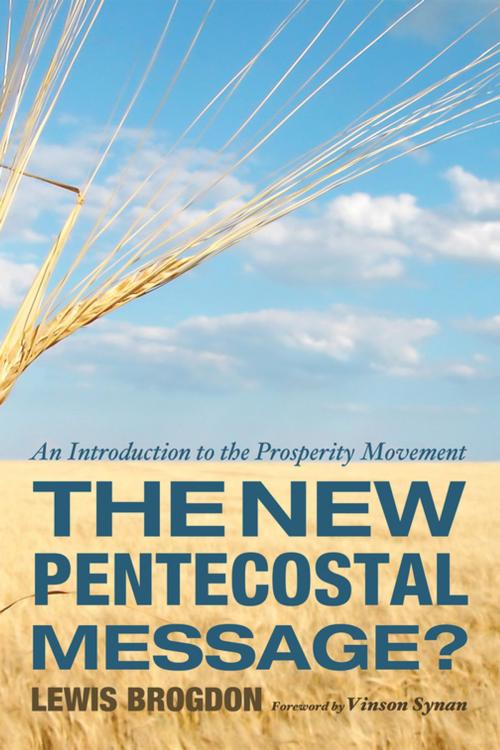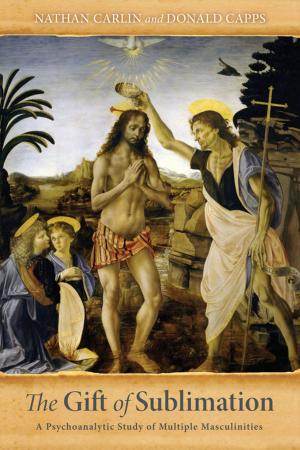The New Pentecostal Message?
An Introduction to the Prosperity Movement
Nonfiction, Religion & Spirituality| Author: | Lewis Brogdon | ISBN: | 9781498205900 |
| Publisher: | Wipf and Stock Publishers | Publication: | June 22, 2015 |
| Imprint: | Cascade Books | Language: | English |
| Author: | Lewis Brogdon |
| ISBN: | 9781498205900 |
| Publisher: | Wipf and Stock Publishers |
| Publication: | June 22, 2015 |
| Imprint: | Cascade Books |
| Language: | English |
The prosperity movement has influenced millions of people in North America, Asia, Europe, South America, and Africa through Pentecostal, Charismatic and nondenominational preachers in some of the largest churches in the world. CNN, ABC, and Time magazine have examined the preachers and churches in this popular and controversial movement. Scholars and church leaders have studied it for more than two decades, producing dozens of books and articles on it. Considering the widespread popularity of the prosperity movement and the attention it is given by its critics, Brogdon asks, "Is prosperity preaching the new Pentecostal message?" In order to answer this question, one has to examine the prosperity movement as a Pentecostal movement instead of a Word of Faith movement that is a revised form of New Thought metaphysics and Science of Mind. Brogdon provides an introduction to the prosperity movement as a Pentecostal movement. He asks important questions in the study of the prosperity movement, such as who popularized prosperity teaching, Oral Roberts or Ken Hagin? Do all Pentecostals agree with the prosperity doctrine? Is prosperity teaching good news to the poor? Has prosperity replaced the emphasis on the Holy Spirit? The answers may surprise you.
The prosperity movement has influenced millions of people in North America, Asia, Europe, South America, and Africa through Pentecostal, Charismatic and nondenominational preachers in some of the largest churches in the world. CNN, ABC, and Time magazine have examined the preachers and churches in this popular and controversial movement. Scholars and church leaders have studied it for more than two decades, producing dozens of books and articles on it. Considering the widespread popularity of the prosperity movement and the attention it is given by its critics, Brogdon asks, "Is prosperity preaching the new Pentecostal message?" In order to answer this question, one has to examine the prosperity movement as a Pentecostal movement instead of a Word of Faith movement that is a revised form of New Thought metaphysics and Science of Mind. Brogdon provides an introduction to the prosperity movement as a Pentecostal movement. He asks important questions in the study of the prosperity movement, such as who popularized prosperity teaching, Oral Roberts or Ken Hagin? Do all Pentecostals agree with the prosperity doctrine? Is prosperity teaching good news to the poor? Has prosperity replaced the emphasis on the Holy Spirit? The answers may surprise you.















